- Participate
- Testimonials
Well-Being Visions

Dr. Daniel Wheatley

»Well-being is multi-dimensional«
As a concept well-being is multi-dimensional, but is closely linked with definitions of ‘happiness’ and ‘quality of life’, and incorporates both physical well-being associated with the condition of our body and factors which influence it, and psychological well-being which is concerned with our mental health and happiness (from Wheatley, forthcoming).
My vision of well-being is situated in the way work interacts with the quality of our lives. Work is, for the majority of us, a central part of our lives whether paid or unpaid (including voluntary work and provision of care). The interaction between work and the rest of our lives, and the influence work has on our well-being, is complex. Through better understanding this relationship we can improve the quality of our working lives and our wider well-being.
Dr. Daniel Wheatley
Director of Undergraduate Programmes
Department of Management, Birmingham Business School
University of Birmingham

Janessa May Vleghert

» Being in a supportive and educational environment «
My vision of well-being concerning my studies comes down to being in a supportive and educational environment which encourages academic and personal growth. I look forward to the possible connections between peers across the borders.
Janessa May Vleghert
BA student of English language and culture
Leiden University

Prof. Daniele Vignoli

»Well-being is of overwhelming importance for a well-functioning society«
Subjective well-being is of overwhelming importance for a well-functioning society: it facilitates positive outcomes in many spheres of life (family formation, health, productivity). In demography, subjective well-being proved crucial in structuring individuals’ life courses.
Prof. Daniele Vignoli
Full Professor of Demography
University of Florence

Daphne Tona

» Well-being is a human right «
My understanding of well-being is … [a]n experience of having good mental and physical health, high life satisfaction, a sense of meaning or purpose, and ability to manage stress.
I believe well-being is a human right. Every single human being deserves to have access to facilities that ensure their mental and physical health.
As a researcher, psychologist and lecturer, I consider it my responsibility to enhance resilience, contribute to a society with mentally strong people and create a better future for the young generation.
Daphne Tona
Lecturer and Researcher
Clinical Psychology Section
Leiden University

Prof. Dr. Dr. h.c. Andreas Speer

»Well-being provides a way to understand what is needed«
Well-being provides - in contrast to being as mere survival - a way to understand what is needed and how best we can collaborate to improve our lives in a complex world. As a concept, well-being is grounded in the idea of a dynamic understanding of reality and the idea of individual responsibility.
[Well-being] is the individual subject that should be empowered to take responsibility for achieving one’s personal goals within one’s social environment. In competition with authoritarian and formative tendencies we have to empower our students on their career-path and their professors to develop their own creative potential while taking responsibility for the social and the environmental needs.
Prof. Dr. Dr. h.c. Andreas Speer
Professor for Philosophy, Director of the Thomas-Institut, of the a.r.t.e.s. Graduate School for the Humanities Cologne and of the Albertus Magnus Center for Early Career Researchers (AMC), Spokesperson of the Cologne Center for eHumanities (CCeH)
Thomas-Institut
University of Cologne

Charlotte Restif

»Well-being is for me the way of feeling free, secure, relaxed, satisfied in my life«
Well-being can only [exist] when primary needs are satisfied, like having all you need to eat and being safe. Human beings can then satisfy other needs to fullfil themselves: culture, sports, freedom… Well-being can be mental or physical, but most of the time people need both to be able to really feel well-being. Well-being is an individual feeling, and there are many ways to reach well-being, depending on the people. But well-being is also connected to other persons: it can be difficult to feel well when others are in need.
In terms of research, my university has a strong focus on health, which is a way to contribute to well-being in the world. Helping students to go study abroad, learning languages, openness and cultures is for me a way to help them reach well-being.
Charlotte Restif
Project Manager for International relations
University of Nantes

Dr Marcel Pop

Be in line and harmony with your values and beliefs
Be content with yourself and your environment. Love what you do and make sure to have some true friends. Be in line and harmony with your values and beliefs. If you have all this, you are happy and you live well! In my understanding, this is what well-being represents. And if we can help people to reach this state, why shouldn't we?
Dr. Marcel Pop
Director, Directorate of International Relations
Semmelweis University
Dr Marcel Pop
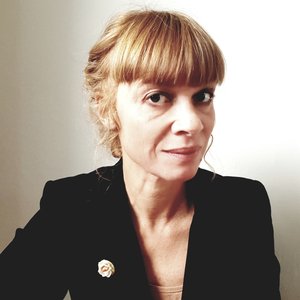
Julie Morere

»Well-being in teaching is firstly linked to the well-being of our students «
Well-being in teaching is firstly linked to the well-being of our French and international students. Making sure that they study in good conditions with a proper home, that they are not isolated, that they have all the necessary equipment to learn (computer, internet connection), that they have access to all of the university resources (libraries, labs) and student life activities is what matters most.
Julie Morere
Associate Professor in English
University of Nantes

Dr. Joery Matthys

»My understanding of well-being is centered around the academic community«
My understanding of well-being is centered around the academic community. I am part of, both in relation to my colleagues and to my students. It is the opportunity to grow as a person, balancing personal and professional life. It is the ability to support others in their growth, which is often seen most directly with the students one engages with. But at the same time it is the space others give you and you give others to do things yourself, making the occasional mistake and learning from it. Finally, it is being at ease, internally and with your surroundings. That doesn’t mean that well-being disappears when circumstances get more though. In the right supported environment, any challenge can be overcome.
Dr. Joery Matthys
Assistant Professor
Institute of Security and Global Affairs
Leiden University
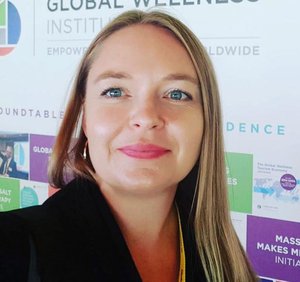
Dr. Lali Lindell

» A world where we emphasize the value of being well together «
Well-being is a state of all-embracing balance & harmony that includes all aspects of life. In my view sustainability is a base for well-being but well-being goes beyond that. Well-being is comprehensive since it encompasses functional and thriving ecosystems and communities, as well as a harmonious and healthy being on an individual level. This means a vital and resilient physical body, a relaxed and focused mind, and an open and joyful heart. My vision for well-being is a world where we emphasize the value of being well together, and where we intentionally focus on co-creating a community based on acceptance, care, and celebration of others and of all life.
Dr. Lali Lindell
Project leader Well-Being in Tourism
SB WELL, Environmental Science & Environmental Psychology, School of Business and Economics
Linnaeus University

Prof.dr.mr. Ton Liefaard

»Well-being of children is a critical element of the global sustainable development agenda«
I believe that the well-being of children is a critical element of the global sustainable development agenda, which uses the adage ‘leaving no one behind’. Securing the well-being of children, now and in the future, through the recognition of children’s rights and freedoms will undoubtedly contribute to a world that is just, meaningful and inclusive for the generations to come.
Prof.dr.mr. Ton Liefaard
Vice Dean for Education of Leiden Law School, full Professor of Children’s Rights
Leiden Law School
Leiden University

Ida Lickhammer

»Well-being is that you feel happy about your life and are satisfied with your situation«
My understanding of well-being is that you feel happy about your life and are satisfied with your situation. For example, if you have friends and like your job, you will feel good.
My vision of well-being is that as many students as possible feel joy when they are in school and also that the relation between teachers and students are good.
Ida Lickhammer
MA student
Master Programme Social Work
Linnaeus University

Ph.D. Stefan Lagrosen

»Well-being has an individual as well as a community aspect«
For me, well-being has an individual as well as a community aspect. The individual aspect concerns the person as a whole: body, mind and soul. Well-being implies a strong, fit, well-functioning body, a joyful mind and a loving soul. On a community level, well-being includes a fair distribution of wealth, an inclusive open society without discrimination, respect for nature and protection of the environment.
My vision is that well-being permeates society in the way outlined above and that all people feel well-being in their own lives and happily contribute to the well-being of others.
Ph.D. Stefan Lagrosen
Professor of Management, Director of the eHealth Institute
eHealth Institute
Linnaeus University

Ingy Jabri

"A socially and mentally nourishing and supportive environment"
“A socially and mentally nourishing and supportive environment is a fundamental aspect of well being pertaining to student life on campus. This is only possible through the cooperation of all members of the academic community. “
Former Vice-President of International Student Association
Semmelweis University
Ingy Jabri

Leah Ireland

»Well-being is a holistic and integrated process of being-in-the-world«
To me, well-being is more than just a state or disposition, it's a holistic and integrated process of being-in-the-world. It's a practice and intention of care and is best understood in relational terms: that care for the 'self' has effectual and affected causes on the care-for, and well-being of 'others'. It's the recognition that health and happiness are interlinked between humans, other species and our environment - and that by applying care and seeking the betterment of our common well-being, we are in the process of bettering the way we relate to the rest of the world and each other.
Leah Ireland
MA student
Master Programme Design+Change
Linnaeus University

Jun.-Prof. Dr. Sandra Hofhues

»Universities contribute to the well-being of their members«
My understanding of well-being is ...
that everyone's fine.
My vision of well-being is ...
that universities contribute to the well-being of their members, especially students.
My vision of well-being in relation to my teaching, research, and transfer activities and university’s governance structures is ...
that we pay more attention to the needs of today's students with regard to their studies.
Jun.-Prof. Dr. Sandra Hofhues
Professorship for Educational Technology and Media Eduation
Department of Education and Social Sciences
University of Cologne

Philippine Guillaume

»Well-being is particularly important in higher education«
I believe that well-being is particularly important in higher education. Well-being should be a significant aspect of higher education strategies related to teaching, research, student life, administration and governance. Our international relations strategies should also focus on supporting and improving students’ and staff’s wellbeing (incoming and outgoing).
Philippine Guillaume
European Projects Officer
International relations Direction
University of Nantes

Irene Ghaleb

»Well-being is a combination of economic, social and environmental parts«
If I had to summarize the concept of well-being I would certainly follow the cardinal points of my course of study in Development Economics, combining the economic, social and environmental parts to achieve the individual's mental and physical well-being. This accompanied by a differentiation between us, living by making the best use of our cognitive and emotional abilities, but responding to our daily needs. Today the concept of well-being can be represented in an even larger dimension than in the past and working together at European level gives us even wider margins. We can have access to several different methods to broaden our welfare, but starting from today's education and learning is the best way to create a society of tomorrow that is based on the pillar of well-being.
Irene Ghaleb
Business manager Youth Action Hub Italy
UNCTAD youth
University of Florence

Prof.dr. André Gerrits

»Well-being is primarily a collective political notion«
As a scholar of international relations and urban issues, I see well-being primarily as a collective political notion. It is about security, and the minimum requirements for a decent life. Extreme poverty, political repression, poor governance and statelessness are offensive to human dignity, to human well-being. They are a danger to democracy.
Prof.dr. André Gerrits
Professor of International Studies and Global Politics, and Chair of the BA Urban Studies
Leiden University

Marco Fusari

»Well-being is being satisfied of the person you are«
Being satisfied of the person you are, being able to reach your human and professional goals, having the capacity to manage stress and control the negative thoughts, this is what I consider part of my well-being.
Marco Fusari
Student
Mathematics
University of Florence
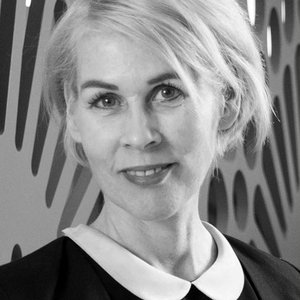
Prof.dr. Andrea Evers

»Well-being is an increasingly dynamic source for societal and technological innovations«
Health and well-being of our citizens lie at the core of our society and is an increasingly dynamic source for societal and technological innovations in the 21st century. Historically, the study of disease mechanisms and the development of new treatments were particularly part of the healthcare domain. Due to the ageing society, technological possibilities and increasing number of chronic conditions, more attention is directed on maintenance of health and well-being (instead of the absence of disease), prevention of the onset or worsening of chronic disease (instead of care and cure of acute diseases), and interdisciplinary self-management approaches with digitalized tools in coping with a chronic conditions (instead of monodisciplinary treatments).
Prof.dr. Andrea Evers
Professor of Health Psychology and chair of the Health, Medical, and Neuropsychology unit
Leiden University

Dr. Hendrik den Ouden

»Well-being means so much more to me than just physical integrity«
Well-being means so much more to me than just physical integrity. It’s about being free in making your own decisions, having unlimited access to knowledge and qualifications and being happy about being surrounded by the people you love.
I want to contribute to creating a society in which everyone can be whatever they want to be: independent and happy and with free access to knowledge.
We are all having different approaches to learning and teaching. [...] Therefore, the goal must be making every access possible and to recognize it as a precious value.
Dr. Hendrik den Ouden
Acting Head
Center for Advanced Teaching and Learning
University of Cologne

Antoine Déleant

»Well-being is a state of mind«
When thinking about well-being, I would say that it is a state of mind brought about by appropriate living conditions such as social ties, economic situation and health, for example. In a state of well-being, you have more than likely what is necessary to be happy.
Antoine Déleant
Student
Student in Management, Member of the EUniWell Students' Panel
University of Nantes

Camilla Cosi

»Well-being is strictly related to the concept of feeling part of a whole community«
I agree with the general definition of well-being as experience of health, happiness and prosperity. Generally well being is feeling well. My vision of well being also includes social integration, inclusiveness, economic stability and prosperity, respect of diversity , protection of every Being (human, animal, nature), opportunity for everyone to improve his future and a better living in order to contribute to the future of the whole society. The vision of well-being in relation to my position within the University of Florence is strictly related to the concept of feeling part of a whole community, respect colleagues opinions, works, political, religious differences. Respect common spaces, gain a common goal. Well-being could be improved providing additional services to make time spent at work more pleasant (bicycle racks, kitchenette, psychological support…).
Camilla Cosi
International Relations Office
University of Florence

Léa Charbonneau

»Well-being corresponds to an ideal situation«
According to my view, well-being corresponds to an ideal situation, made possible by the assembly of numerous factors : personal fulfilment, ideal environment, favourable living conditions, the freedom to do the things we like, the possibility to create, express, learn...
As a student, I think that feeling good in school is primordial. Thus, well-being can, and must, be correlated to the study programs thanks to a healthy work environment at first, where everything is favourable to the success and the fulfilment, individual and collective, of the students.
Léa Charbonneau
Student
Law
University of Nantes

Prof. Dr. André Bresges

» Our empathy needs to follow across all boundaries «
From the first axe and the discovery of fire, Science and Technology are parts of human culture. Like axe and fire, technology and Science products serve the needs of some and pose risk and hazards of others. What some people see as the inherent danger of Science and Technology, is in fact a shortfall of our culture: We think within our cultural boundary and do not pay enough attention to the needs and fears of others. But today, the impact of our technology as a cultural product reaches really far, and our empathy and our understanding needs to follow across all boundaries. This is why our STEAM teaching approach integrates Science, Technology, Engineering, Arts and Math to understand the needs of humans near and far, the impact of technology and environmental change on their lives, and puts creativity and empathy first to create a positive impact.
Prof. Dr. André Bresges
Director
Institute of Physics Education
University of Cologne

Maria Chiara Brandolini

»Well-being is a state of happiness and good physical and mental health«
My vision of well-being is a state of happiness and good physical and mental health achieved in and through all the different aspects of daily life. As a PhD Student, my studies represent a big part of my daily routine and are among the things I cherish and I care about the most: being able to live and pursue my research in a university context that values my aspirations, that cares about my mental health, that is attentive to my necessities (having access to as many online resources as possible, being in touch with students and professors from my and other universities, moving around Europe easily, work in a positive ambiance, both from a human and an environmental point of view), this is what I perceive as an essential part of my well-being.
Maria Chiara Brandolini
PhD Student
PhD Student

Hugo Boisaubert

»Well-being implies a large part of interdiciplinarity«
Well-being is a large concept not only in the sense of "be[ing] in a good physical condition" but also psychic and psychologial as [well as] social and civilisational condition, too.
Well-being has to be understood and used in all its complexity, not only in each different field, but in the middle of each field interaction. My vision of well-being implies a large part of interdiciplinarity to be able to propose new solutions for well-being in Europe.
Hugo Boisaubert
Student
Student in science and technology, Member of the EUniWell Students' Panel
University of Nantes
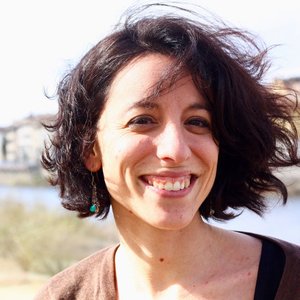
Caterina Arciprete

»Well-being is much more than having a decent life«
Well-being is much more than having a decent life. It’s flourishing, it’s the freedom to “compose” your life based on your values and aspirations.
Well-being is strongly anchored to an individual perspective. To me, well-being is highly relational, meaning that our well-being depends also on how the others are: human beings, communities, nature. We are all fragile and inter-connected.
I try to apply a “well-being lens” throughout all my work: from the identification of a relevant research to caring about colleagues’ workload. But overall, it implies believing in the importance of the social engagement of the University as an Institution.
Caterina Arciprete
Post-doc Researcher
Department of Economics and Management / ARCO Research Centre
University of Florence
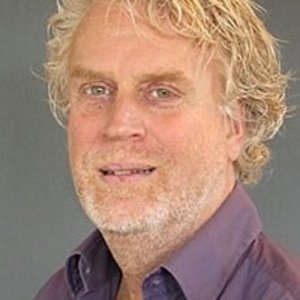
Prof.dr. Wilfried Admiraal

»Well-being refers to feeling comfortable and at home in who you are and what you do«
For me well-being refers to feeling comfortable and at home in who you are and what you do, no matter it is about learning, teaching, research, administration or just daily activities and meetings. We can support each other’s well-being by showing respect and providing each other an open and safe place to be who we are or who we want to be. That does not mean we cannot be challenged; yet the challenge should be taken on within a culture of openness and safety.
Prof.dr. Wilfried Admiraal
Director / Professor of Educational Sciences
Leiden University Graduate School of Teaching
Leiden University
